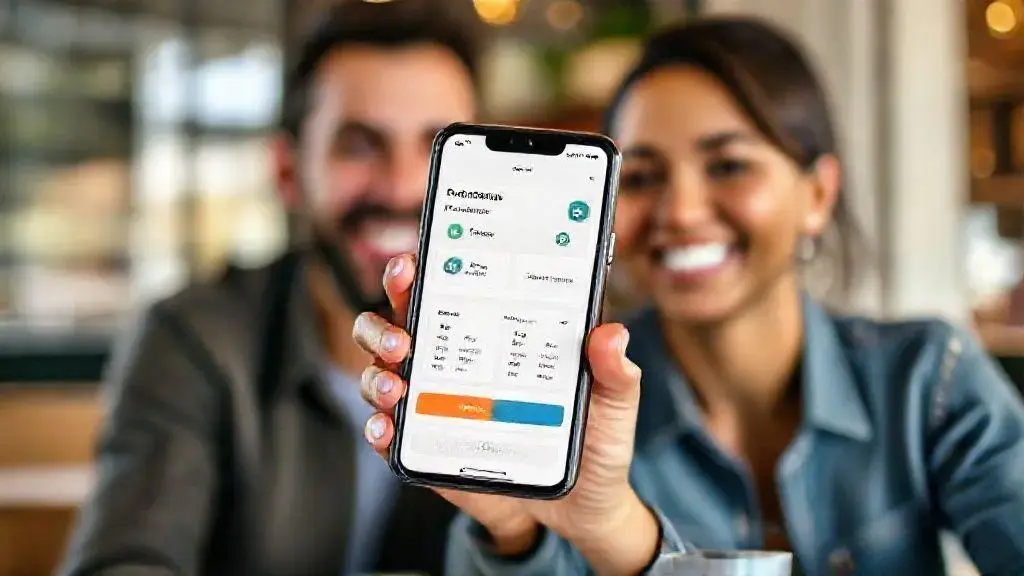Digital wallets replacing traditional banking: a new era

Anúncios
Digital wallets are replacing traditional banking by providing users with convenience, enhanced security, and integrated financial services, making transactions quicker and more efficient in the evolving financial landscape.
Digital wallets replacing traditional banking is a trend that’s reshaping our financial landscape. Have you ever wondered how these technologies might impact your daily transactions and savings habits? Let’s dive into this fascinating shift.
Anúncios
Understanding digital wallets and their features
Understanding digital wallets is essential in today’s financial landscape. These innovative tools are transforming how we manage our money, providing a convenient and secure way to conduct transactions.
Digital wallets store your payment information securely. They can be linked to your bank accounts, credit cards, or even cryptocurrency. With the rise of online shopping and contactless payments, knowing how these wallets work is crucial.
Anúncios
Key Features of Digital Wallets
One of the main advantages of using digital wallets is their user-friendly features:
- Convenience: Access your funds anytime, anywhere using your smartphone.
- Security: Most digital wallets use encryption and tokenization to protect your information.
- Speed: Transactions are processed quickly, often in seconds.
Another important aspect is the integration with various services. Many digital wallets allow you to make payments for bills, transfer money to friends, or pay for services online without hassle. As technology evolves, more features are becoming available, enhancing the user experience.
Types of Digital Wallets
Digital wallets can be categorized into several types:
- Mobile wallets: Apps on smartphones that store your payment information.
- Web wallets: Accessible through a browser, allowing online transactions.
- Hardware wallets: Physical devices designed for secure cryptocurrency storage.
Each type has its benefits, catering to different needs. Ultimately, selecting the right wallet depends on your preferences and how you plan to use it. Understanding these features will help you make informed choices about managing your finances in the digital age.
Advantages of using digital wallets over banks

Advantages of using digital wallets over banks are becoming increasingly evident as technology evolves. Many people are finding that digital wallets offer a range of benefits that traditional banking cannot match.
One key advantage is convenience. With digital wallets, users can make transactions anytime and anywhere using their smartphones. This flexibility changes how we think about accessing our money, making it easier to purchase goods and services on the go.
Security Features
Another area where digital wallets shine is in security. Most digital wallets employ advanced security measures:
- Encryption: Sensitive information is protected and unreadable by unauthorized users.
- Biometric authentication: Users can use fingerprints or facial recognition to authorize payments.
- Tokenization: Your actual card number is never shared during transactions, minimizing risk.
These layered security features provide peace of mind when making purchases online or in-person.
Lower Fees
Many users also appreciate the lower fees associated with digital wallets. Unlike banks, which may charge monthly maintenance fees and transaction fees, digital wallets often have fewer or no charges. This can lead to significant savings over time, especially for frequent transactions.
In addition, the integration of rewards programs into digital wallets adds another layer of value. Users can earn cash back or points for their purchases, which is a benefit many traditional bank accounts don’t offer. Overall, the advantages of using digital wallets are reshaping how we interact with our finances, emphasizing greater control and efficiency.
Challenges faced by digital wallet users
Challenges faced by digital wallet users are important to consider as we embrace this technology. While digital wallets offer numerous benefits, they also come with a set of challenges that can affect the user experience.
One significant issue is security concerns. Although digital wallets implement advanced security features, users may still worry about data breaches or unauthorized access to their accounts. It’s vital to choose a reputable wallet and utilize all available security measures.
Technical Difficulties
Technical difficulties can also arise. Some users may encounter problems, such as:
- App malfunctions: Unexpected crashes or bugs can disrupt transactions.
- Compatibility issues: Not all devices or merchants accept every digital wallet.
- Internet dependency: Access requires a stable internet connection, which can limit usage in certain areas.
These technical issues can detract from the overall user experience and create frustration.
Limited Acceptance
Another challenge is the limited acceptance of digital wallets. While more merchants are adopting this payment method, not all businesses accept digital wallets. Users may find themselves in a situation where they cannot use their wallet for a transaction, which can be inconvenient.
Additionally, there is the risk of becoming too reliant on digital wallets. If a user loses their phone or experiences a technical failure, accessing funds can become problematic. Therefore, it’s essential to have backup options and be mindful of potential pitfalls. As the technology evolves, addressing these challenges will be crucial for broader adoption and user satisfaction.
The future of banking: digital wallets leading the way

The future of banking is undeniably being shaped by the rise of digital wallets. As more people embrace technology, traditional banking is evolving to keep up with new demands and capabilities.
Digital wallets offer an ease of use that many banks struggle to match. With just a few taps on your smartphone, you can send money, pay bills, and make purchases, all without needing to visit a physical branch. This accessibility is making banking services more inclusive for various demographics.
Integration with Financial Services
One of the exciting trends is the integration of digital wallets with other financial services. Many wallets now enable users to manage their investments, access credit, or even buy insurance directly from the app. This consolidation of services in one place is not only convenient but also enhances user engagement.
- Personal finance management: Wallets provide tools for budgeting and tracking spending.
- Rewards programs: Many digital wallets come with integrated loyalty programs that help users maximize their benefits.
- Cryptocurrency support: Digital wallets often allow users to hold and trade cryptocurrency.
As digital wallets continue to innovate, banking services will likely evolve to offer similar functionalities, blurring the lines between traditional banking and digital finance.
Trends in Payment Technology
Another aspect of the future involves the trends in payment technology. Mobile payments have gained popularity, leading many businesses to adopt contactless systems that integrate seamlessly with digital wallets. This shift enhances security and speed, appealing to customers looking for efficient transaction methods.
Moreover, the rise of artificial intelligence and machine learning within digital wallets enables personalized user experiences. These technologies can analyze spending habits and offer tailored financial advice. As we look ahead, the future of banking likely hinges on the continued growth of these digital solutions, heralding an era of greater convenience and personalization.
FAQ – Frequently Asked Questions about Digital Wallets and Banking
What are digital wallets?
Digital wallets are apps that store your payment information and allow you to make transactions online and in-person using your smartphone.
How do digital wallets enhance security?
Digital wallets use features like encryption, biometric authentication, and tokenization to protect your financial information from unauthorized access.
What challenges do users face when using digital wallets?
Users may encounter security concerns, limited acceptance at some merchants, and technical difficulties with the apps.
Are digital wallets the future of banking?
Yes, as digital wallets offer convenience, cost savings, and integration with various financial services, they are likely to play a significant role in shaping the future of banking.





